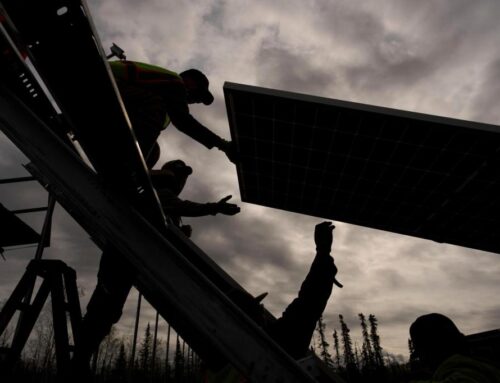Central Europe accelerates fossil-fuel transition with solar and battery projects
November 1, 2025
As the world is consumed by the need to leave the traditional energy sector behind, Central Europe has emerged as a main accelerator of the global energy transition, playing out at the moment. Several Central European nations have seen astonishing increases in solar and battery storage projects, which will enable the energy sector to lean on the untapped potential that the renewable energy sector has stored away. Central Europe has relied on the gas and oil production coming from Russia and has plans to phase out energy from Moscow.
Renewable energy projects are key to the global energy transition
For far too long, the impact of the fossil fuel sector’s dominance on the global energy market has been ignored. Following the litany of climate disasters that have ravaged parts of the world, the political and social leaders worldwide have called for the renewable energy sector to receive significant investments to fast-track the transition of the energy market.
Reports have now emerged that state the key role that Central Europe will play in the global transition away from fossil fuels towards the renewable energy sector. Several nations in the region have developed and commissioned innovative projects that accelerate the transition and strengthen the standing of solar and battery storage systems that are locally produced.
Over the past three years, several Central European nations, including Austria, Hungary, Romania, and Poland, have sharply increased solar power capacity to boost local energy production. This rise has driven fossil-fuel generation to record lows in 2025.
The growth of solar power has been matched by the battery storage systems in Central Europe
The inevitable death of the conventional energy generation methods that the world has relied on for generations has been accelerated by the increase in solar capacity and improved domestically produced battery storage systems in Central Europe.
Notably, two nations are leading the charge to integrate the renewable energy sector in Central Europe, namely Austria and Hungary. Both nations have up until recently, relied on imports of energy from Russia, although a phase out of Russian gas and coal has forced them to sharply decrease that reliance. Austria now imports most of its gas from Slovakia, while Hungary still imports Russian-made gas and coal, although that number has declined too.
This year alone, Austria has generated about 17 % of its electricity from solar-powered projects, exemplifying the transitional nature of the Central European energy market. Hungary, on the other hand, has seen its solar share increasing to approximately 33%.
Battery storage systems have also seen tremendous growth over the past few years in Central Europe. Between 2022 and 2025, Austria, Hungary, and Romania boosted BESS capacity by roughly 472 %.
Industry experts and insiders have pointed out that regional capacity could grow more than tenfold by the end of the decade. Slovakia, which has been supplying energy to Austria, recently evaluated US technology for a planned 1.2 GW nuclear project, which could fast-track the energy transition in the region even further.
Central Europe has emerged as a key player in the adoption and commissioning of the renewable energy sector
As the world grapples with the impacts of global energy reliance on fossil fuels, the Central European region has emerged as a key player that could accelerate the embrace of the renewable energy sector by advancing the progress being made in the solar and battery storage sectors. As several nations see projects being shut down that would lead to a curtailment of energy capacity, the Central European nations of Austria and Hungary are catapulting the renewable energy sector to the forefront of our collective minds. The end of the conventional energy sector is a lot closer than one might think.
Author Profile
Search
RECENT PRESS RELEASES
Related Post




